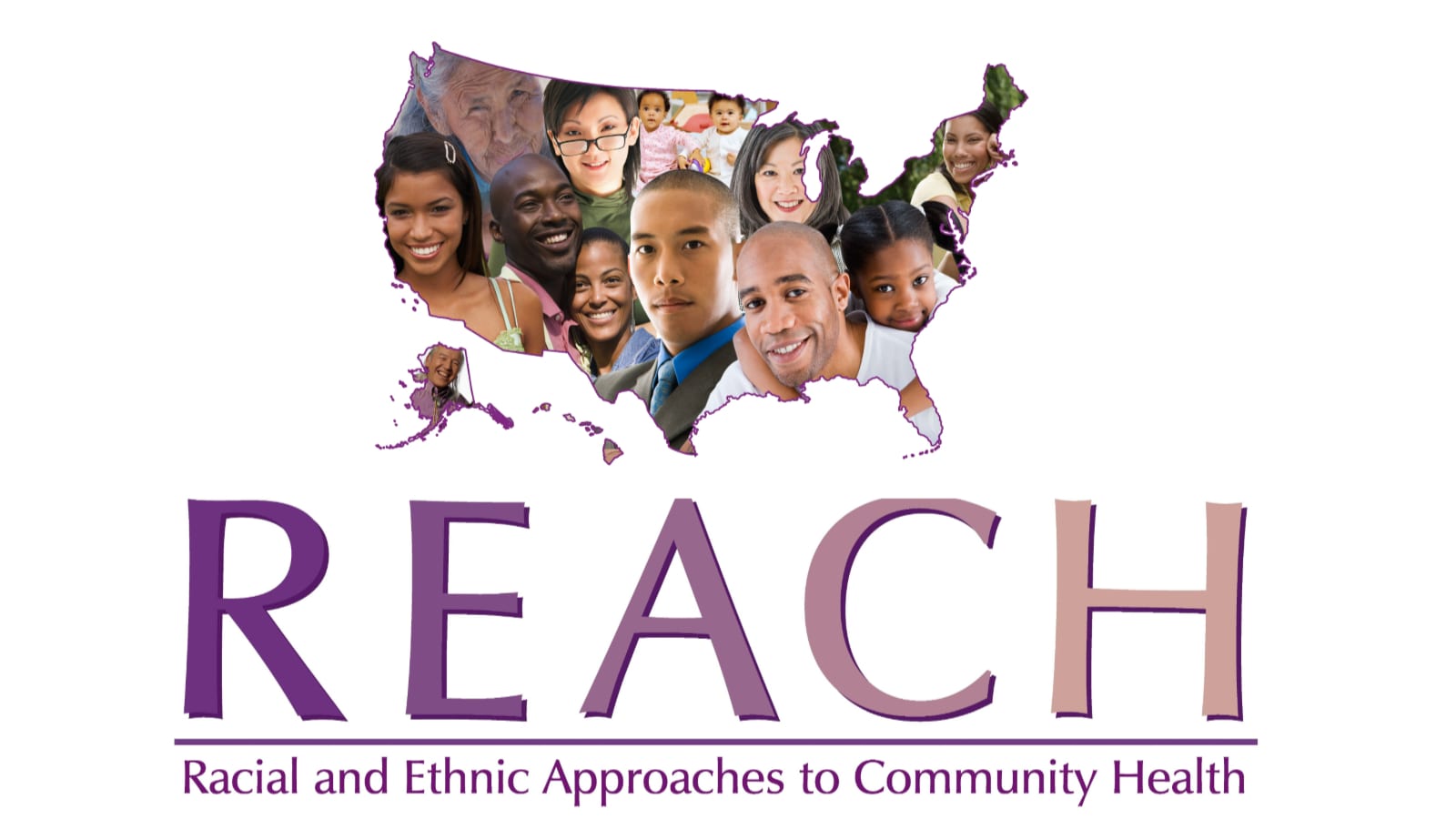At a glance
REACH is CDC’s Racial and Ethnic Approaches to Community Health program. REACH has funded governmental agencies and nongovernmental organizations, including state and local health departments, American Indian tribes/tribal organizations, universities, and community-based organizations. Past REACH program recipients built strong partnerships to plan and carry out local, culturally appropriate programs to address a wide range of health issues.

REACH 2018
Program description
Recipients worked to reduce health disparities among racial and ethnic populations with the highest burden of chronic diseases, such as hypertension, heart disease, type 2 diabetes, and obesity. The recipients used culturally tailored interventions to address preventable risk behaviors, including tobacco use, poor nutrition, and physical inactivity.
Fiscal years: 2018–2023
Number of awards: 40
REACH 2014
Program description
Recipients focused on poor nutrition, physical inactivity, and tobacco use and exposure. They also worked on access to chronic disease prevention and risk reduction and management opportunities. The program used evidence- and practice-based strategies and tailored community and participatory approaches to reduce health disparities in racial and ethnic communities.
Fiscal years: 2014–2018
Number of awards: 49
REACH Demonstration Projects
Program description
Recipients developed and implemented strategies to reduce obesity and hypertension in groups experiencing health disparities. Activities included:
- Conducting assessments of current community initiatives.
- Identifying and designing successful long-term programs and initiatives to reduce health disparities.
- Working with communities to identify ways to improve and prevent obesity and high blood pressure.
Fiscal years: 2012–2014
Number of awards: 2
REACH National Networks Program
Program description
Recipients focused on changes in weight, proper nutrition, physical activity, tobacco use, emotional well-being, and overall mental health. Recipients addressed disparities in heart disease, diabetes, infant mortality, and asthma. Recipient activities included funding up to 15 local partners or community-based organizations to reduce health disparities, documenting community changes and evaluating intervention programs, and disseminating proven and innovative programs and successes to expand the evidence base.
Fiscal years: 2012–2013
Number of awards: 6
REACH CORE
Program description
Communities organized, implemented, and evaluated evidence-based interventions to eliminate racial and ethnic health disparities in chronic diseases. The program also supported communities in moving from analyzing intervention results toward using findings to reduce health disparities.
Fiscal years: 2010–2011
Number of awards: 10
REACH Minority–Serving National Organizations
Program description
Enabled national organizations to share evidence- and practice-based programs related to specific health disparities with their local affiliates and chapters.
Fiscal years: 2009–2013
Number of awards: 6
REACH United States
Program description
Funded 18 Centers of Excellence in the Elimination of Disparities and 22 Action Communities. Recipients used community-oriented participatory approaches to address racial and ethnic health disparities in one or more of seven designated areas.
Fiscal years: 2007–2012
Number of awards: 40
REACH 2010
Program description
Supported projects focused on a coalition-based approach for racial and ethnic minorities in six health priority areas:
- Cardiovascular disease.
- Immunizations.
- Breast and cervical cancer screening and management.
- Diabetes.
- HIV/AIDS.
- Infant mortality.
Fiscal years: 1999–2006
Number of awards: 40
